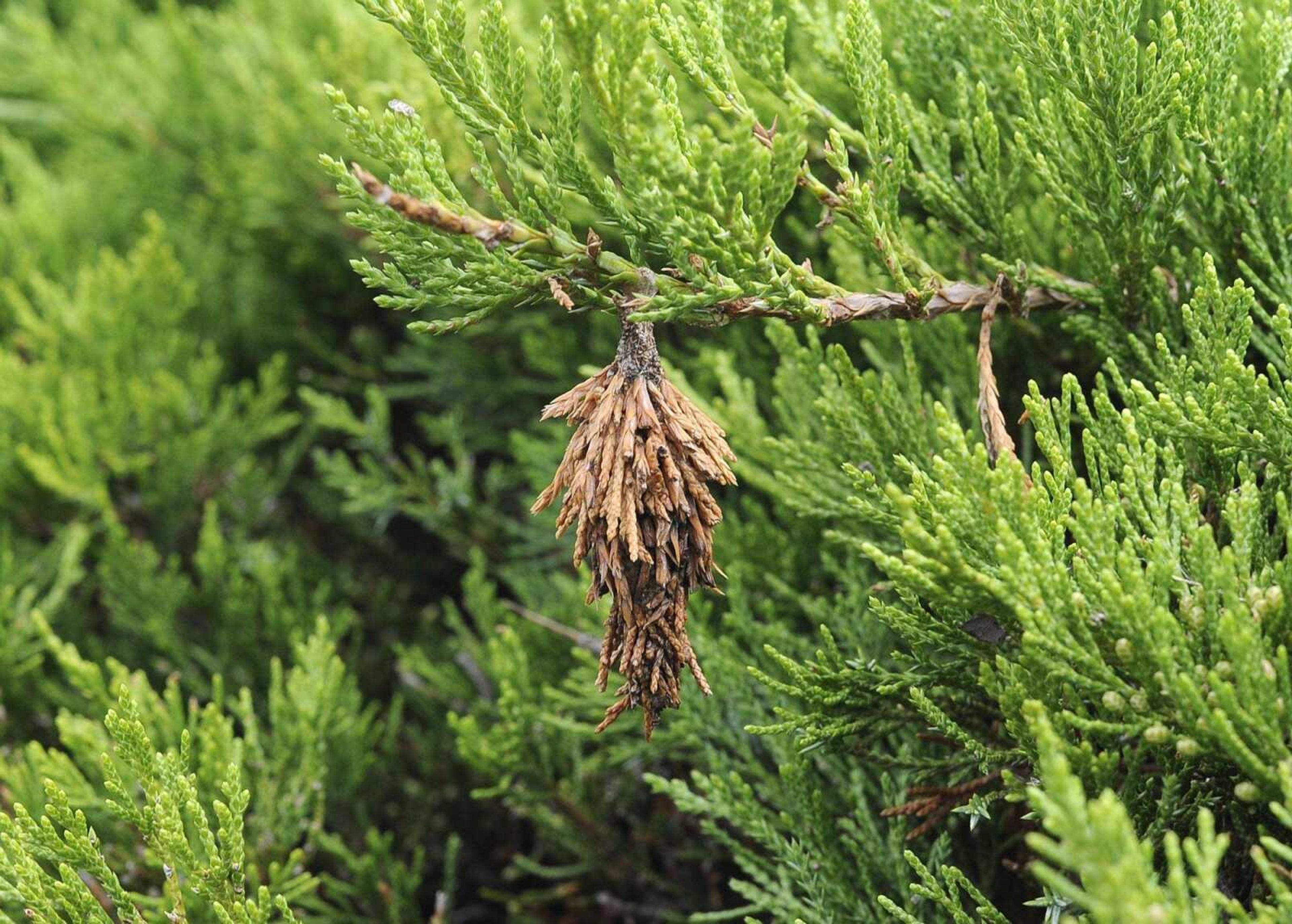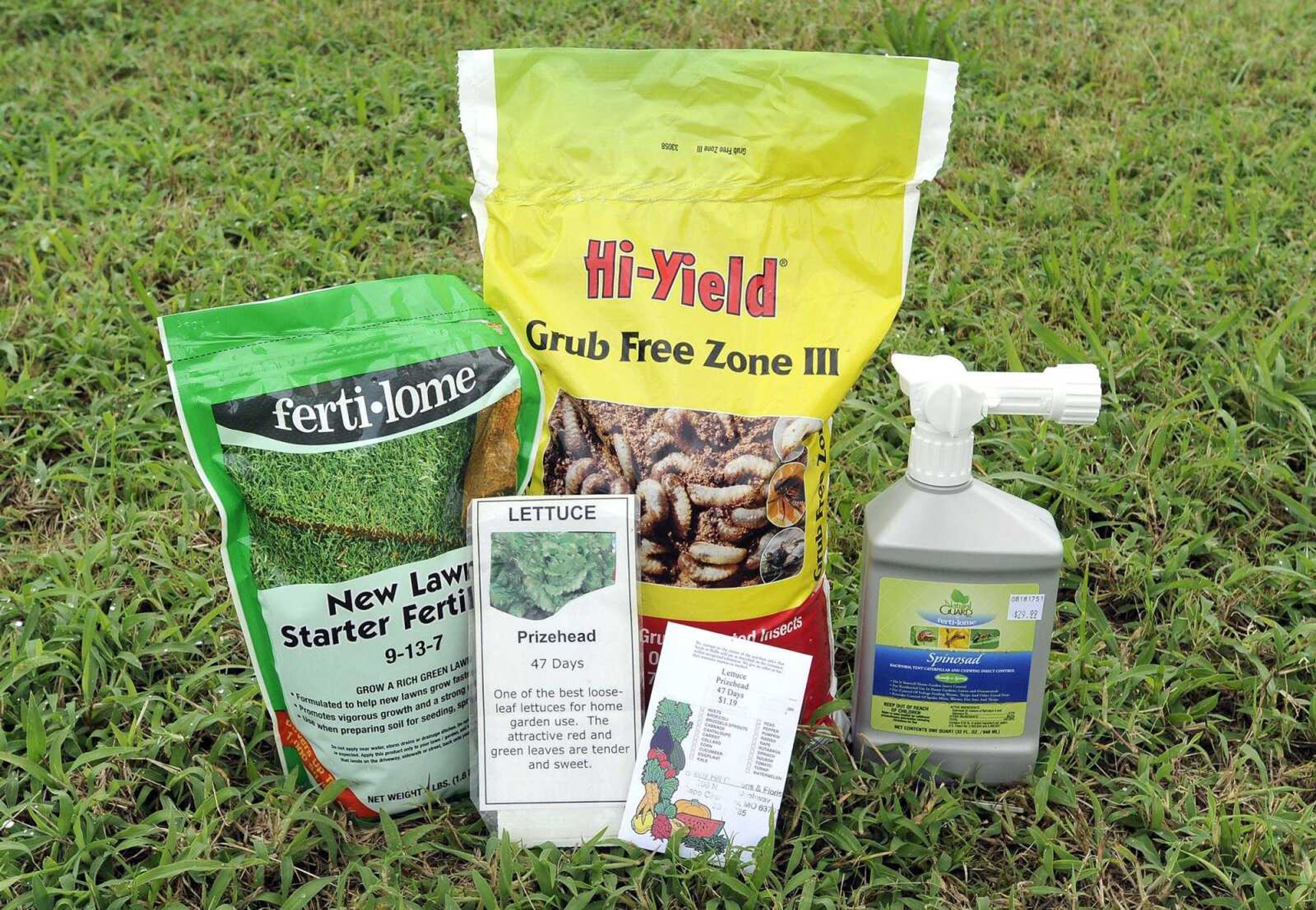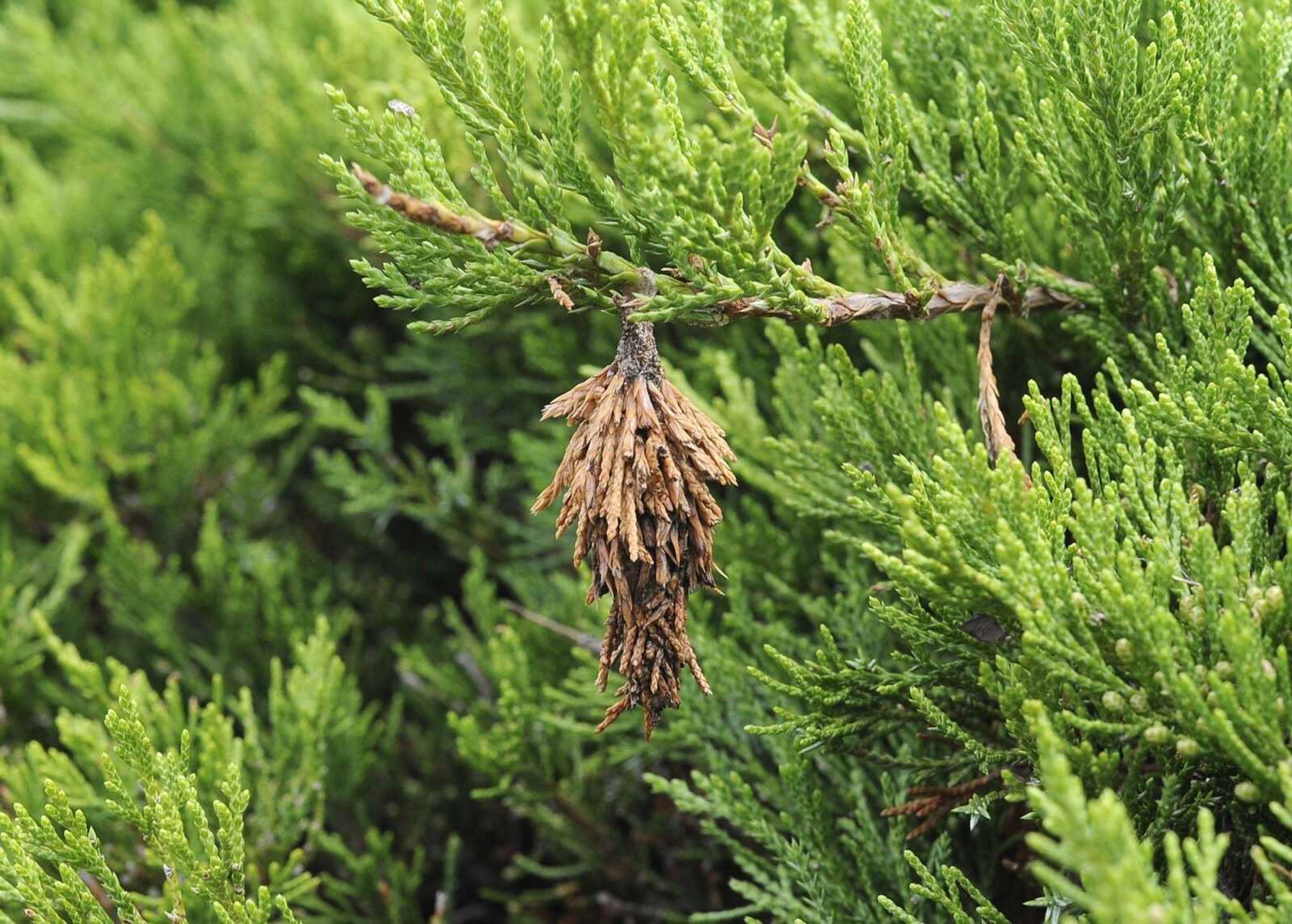Garden topic roundup
I normally choose one timely topic of timely interest to write about in this column. This is somewhat of an unusual year, weather-wise. Therefore I find there are about five different timely topics of interest. So here goes. n First I want to mention bagworms. ...
By Paul Schnare
I normally choose one timely topic of timely interest to write about in this column. This is somewhat of an unusual year, weather-wise. Therefore I find there are about five different timely topics of interest. So here goes.
n
First I want to mention bagworms. This is one of the worst seasons I have seen in years for the outbreak of bagworm damage. I am still seeing bagworms feeding on landscape plants, especially junipers. Pretty soon they will mate, and each female will deposit several eggs in the bag she resides in.
Therefore it is extremely important that you go out and inspect the landscape plants in your neighborhood. If you see any bagworms munching, make sure that you spray them in order to kill them ASAP. This will eliminate any more current landscape plant damage, and will reduce any possible damage that may occur next year.

n
If you are a vegetable gardener, now is the time to start that fall garden. Look for vegetable varieties that mature from seed in 50 days or less. The maturity time length should either be on the vegetable package or on signs in front of the bulk garden seed. Some of the crops are cabbage, lettuce, radishes, etc.
n

If you have seen an invasion of June bugs or Japanese beetles in your neighborhood, be sure to treat your lawn area for grub worms. Part of the life cycle of the insects are grubs live in the soil of your landscape and feed on plant roots as they mature. I have seen entire lawns devastated by grub worm damage. You should treat your lawn with a granular insecticide that has some residual.
n
If your lawn has suffered damage due to an insect infestation or a disease infestation this spring, think about reseeding those areas in your lawn between now and the middle of September if your lawn is a cool season grass such as bluegrass or fescue. Seed and fertilize during this time because the temperatures are going to cool off, and because we will probably get some rainfall to help you get the new seed to germinate and grow as needed.
We have had several environmental issues this growing season that have caused damage to landscape plants and lawns. Now is the time to reseed, replant, and fertilize so that damage can be repaired. Then you can enjoy a great looking landscape later this fall and next spring also.
Connect with the Southeast Missourian Newsroom:
For corrections to this story or other insights for the editor, click here. To submit a letter to the editor, click here. To learn about the Southeast Missourian’s AI Policy, click here.










